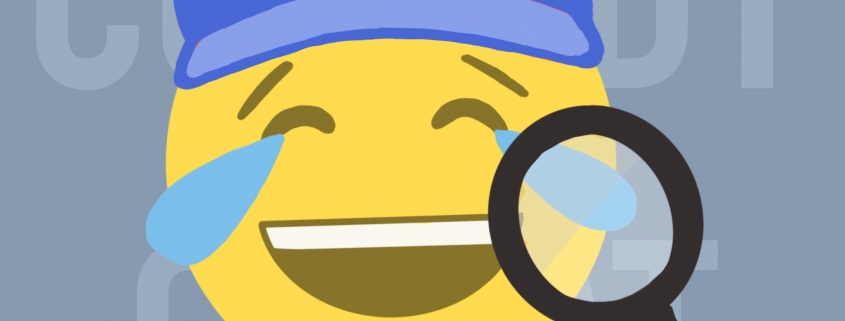Waiting for the Punchline: It’s tricky: ‘political correctness’ in comedy

It seems like no one will shut up about political correctness. In particular, comedians won’t shut up about political correctness, especially those who have been defined by a transgressive sense of humor. But rightfully so — for many of them, this phenomenon affects the very core of what Comedy with a capital C is all about.
You likely already have an idea of what I mean by the term “political correctness.” You might think of the general discomfort you feel when people start talking loosely about ideas involving race, gender, sexuality or other topics of social debate. The ideas themselves might not make you uncomfortable, but the feeling of saying something the wrong way might. You might think of a bunch of eager college kids trying to “cancel” someone they deem problematic. You might think it’s a term invented by uncreative jerks who get bitter when people rightfully criticize them for being, well, uncreative jerks.
In fact, it’s all of the above. There’s no exact definition, but, as far as it relates to Comedy, I would broadly define “political correctness” as the avoidance to discuss, joke about or laugh at the use of certain words, subjects or ideas that public opinion deems offensive. If it sounds broad, don’t worry — that’s by design.
Still, what’s missing from the conversation is that this idea of political correctness has existed long before the election of President Donald Trump. There are some topics you can talk loosely about, and there are some you shouldn’t discuss or joke about. Thirty years ago, joking about religion was considered taboo; now, it’s become the norm for our increasingly secular society. Standards change as our culture changes — this is not exactly the most radical concept. So, this begs the question: Why does this seem to be such a recent phenomenon?
As significant as the 2016 presidential election was, it’s my observation that we haven’t quite come to terms with just how much our culture has changed in its wake. For Trump’s detractors, there’s a rush to prove to the world who we are and what we stand for. We aren’t “them” — aka the people who want to watch the world burn — and we want to show we’re allies every step of the way.
Do people go overboard sometimes? Absolutely. I don’t think there’s a single reasonably-minded person who hasn’t felt that way at some point. The race to be the most “woke” is littered with a lot of un-woke ideas, but they usually don’t gain any sustained traction. The marketplace of ideas succeeds, and the pendulum eventually swings back the other way.
But what does this mean for Comedy? Many traditional comics have railed about political correctness in interviews and in their sets (think Dave Chappelle, Bill Burr, Ricky Gervais among many, many others). It really boils down to one thing: Crowds are harder to please than ever. People seem to laugh a lot less and are cautious toward more subjects, and individual styles of Comedy that were the norm a decade ago now seem dated.
Many comics embrace this so-called “woke culture” and have incorporated it into their Comedy in a variety of ways, but it’s a mixed bag overall. The explosion of political Comedy since the election has uplifted some pretty tired and gutless humor designed more for applause breaks than laughs. As charming as Trevor Noah can be, the Daily Show hasn’t exactly been the bastion of humor that it once was. Late-night hosts’ monologues barely rouse a chuckle out of me these days, and Netflix has seemingly handed out specials to anyone with 60 minutes of half-baked Trump jokes. It’s a cesspool of toothless Comedy meant more to reinforce one’s own identity as “us” rather than provoke insight or laughter.
This isn’t to say that there isn’t any genuinely great Comedy that’s embraced this movement. The most ambitious and successful of the bunch, at least in my opinion, is Anthony Jeselnik. Jeselnik has been a household name in stand-up for over a decade for his irreverent and creative style of dark Comedy. His brash and arrogant stage persona is all a part of the gag. On stage, he plays a horrible guy that says awful things, but there’s an underlying understanding that he doesn’t mean it for anything other than a chuckle — it’s just a persona. Sure, his humor might sound transgressive, but those with reasonable minds know that it’s not an endorsement of being a bad person. What kind of person doesn’t laugh at jokes, especially when they’re as concise, smart and well-written as Jeselnik’s?
With this in mind, I find it kind of ridiculous when people act like shock or edginess in Comedy is dead. Comedy clubs still book comics with a transgressive sense of humor all the time. Howard Stern is still on the air every single day. Burr and Chappelle are more popular than ever. Hell, Chappelle just won a Grammy for a special that was literally titled “Sticks & Stones,” and he was this year’s recipient of the Mark Twain Prize for American Humor — if that’s any indication of where our collective tastes still lie.
There are still spaces in popular Comedy for transgressive humor, but it requires more talent and nuance to pull it off successfully. If that’s what it takes, is it really such a bad thing to raise our standards?
Matthew Philips is a senior writing comedy. His column “Waiting for the Punchline” runs every other Thursday.

